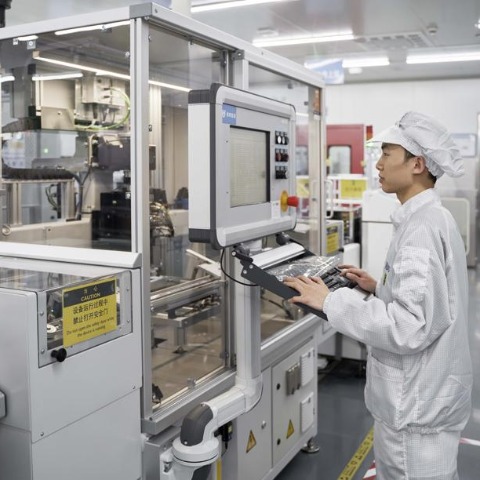



Hengdian Group, based in Zhejiang province, owns the country's largest film and television shooting base and is striving to become a pluralistic business conglomerate through innovation and transformation.
"When speaking of Hengdian, the first thing that comes to our minds is Hengdian World Studios. However, the prosperity of the film and television industry is only the tip of the business iceberg," said Xu Yongan, its chairman and president. The company was founded in 1975 in Hengdian, Zhejiang, and flourished under China's reform and opening-up policy.
The group, with an annual revenue of nearly 100 billion yuan ($15.63 billion), is mainly engaged in four major areas: electrical and electronics; pharmaceuticals and healthcare; film, TV, culture and tourism; and modern services.
According to Xu, Hengdian, in addition to its Hengdian World Studios — China's Hollywood — is the "magnetic capital of the world" as well as the "medical valley of Jiangnan" south of Yangtze River.
Over the past 40 years, Hengdian has gone through three major stages of entrepreneurship and formed a diverse business portfolio. So far, six of its flagship companies have gone public. In addition, several more companies are preparing for IPOs, Xu said.
In the 1980s, Hengdiand started its business in magnetic materials and founded what later became known as DMEGC Magnetics. Under the leadership of Hengdian , DMEGC Magnetics has developed a product line from ferrite magnets to solar cells, solar modules, motor housings, hard alloys, batteries and copper-clad laminates, and has become a high-tech enterprise with two major areas of focus: magnetic materials and devices, and photovoltaic and lithium power. It was listed on the Shenzhen Stock Exchange in 2006.
In the healthcare sector, the group entered the pharmaceutical industry in the 1980s. In 1989, Hengdian founded Apeloa Pharmaceutical, which gradually became the major platform for the group's pharmaceutical business. In 2009, Hengdian Group founded Wedu Medical, a medical device company that specializes in biodegradable polymer materials and aesthetics.
So far, the healthcare business of Hengdian, mainly operated by Apeloa Pharmaceutical, which was listed on the Shenzhen Stock Exchange, covers active pharmaceutical ingredients and intermediates, pesticides, medical devices and medical services.
In a recent development, Apeloa announced it will establish a research and development center in Boston, Massachusetts, in the United States with an investment of $47 million, further consolidating its overseas business strategy in the biotech sector.
The Hengdian Group also expanded into the lighting field in late 1990s and established cooperation with Philips, Panasonic and other well-known international enterprises. At present, Hengdian's TOSPO Lighting has expanded its business into two major areas of general and automotive lighting, with products covering LED fixtures, lighting sources, smart lighting and automotive lighting.
"With more than 60 subsidiaries and 50,000 employees under Hengdian Group, we will continue to seek further business expansion on the global stage through business and technological innovation, and step into other business areas such as international trade, aviation, universities, supermarkets and real estate," Xu said.
If you have any problems with this article, please contact us at app@chinadaily.com.cn and we'll immediately get back to you.